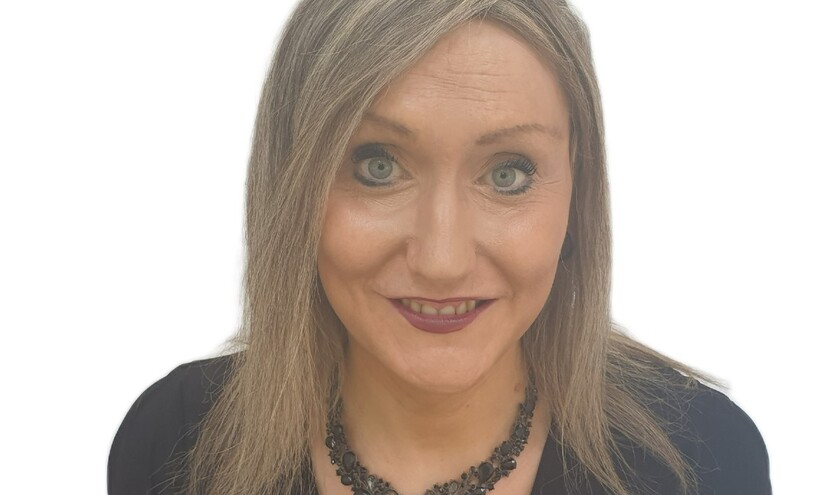While a psychologist by background, McNally said her main interests lay in trying to make the community the source of its own health improvement.
‘I want to move away from a more interventionist approach to public health, by doing my work with people rather than doing it to them – and towards a more community development focused approach,' McNally explained.
‘We can't treat our way out of the health and care challenges we face as a country.'
She offered the example of the Healthy Worcestershire programme, which she described as ‘youth club for adults' as a way of motivating people to adopt healthier lifestyles.
‘The overriding aim is to give people a good time in the hour and a half, two hours they're there once a week,' McNally said.
‘I can get people going along to a health promoting programme for reasons of their health if they're motivated about improving their health, for four weeks, maybe even four months, if I'm lucky, but not four years.
‘The thing that's going to get people going back week after week is if it's part of their social life.
‘That's about integrating health improvement into people's lives, into their communities.'
A ‘real opportunity'
The public health director said the two big transformations in the public sector - neighbourhood health and local government reorganisation - represented a ‘real opportunity'.
‘Both of those policy drivers converge on a really important need to focus on local community and this is why I'm so excited about it all at the moment,' she explained.
With councils forming larger unity authorities and ICBs joining in clusters, McNally said the challenge was to work with neighbourhood teams in order to ensure health remained focused on the local community.
Three domains of support
McNally identified ‘three domains' where public health teams could support neighbourhood health.
‘Firstly, there's population health management,' she observed.
‘We're good at things like statistical modelling, risk stratification, population segmentation, we can do all this but it's also about providing data in terms of, for example, local area profiles. We can go to any single neighbourhood provider and say, there you go, "there's a map of your area. There's where your hospital admissions, your non elective hospital admissions, are going in. There's your poverty, there's unemployment, housing tenure". We can put all that on maps so that then helps them strategically plan their priorities alongside the more quantitative population segmentation and risk classification.'
The second domain McNally highlighted was community development.
‘We can deliver consultation, community engagement, empowerment, because we are working at place and we have links with these communities,' she explained.
‘We can invest in grants, in building resilience in the area, because, as we know, a lot of the issues pushing people into primary care or secondary care are rooted in the wider determinants of health, housing, poverty, poor, education, crime.
‘We can address that through community development, where we're just as interested in knife crime or community safety as we are cardiovascular disease in public health, so what we can do is reduce demand on health services by creating an environment that facilitates better health.'
Thirdly, and perhaps most familiarly, McNally cited health improvement as a key support domain.
‘We can provide pathways into everything from weight management and smoking cessation through to falls prevention, domestic abuse support and substance misuse support,' she explained.
The public health director said her team could help neighbourhood health providers priorities by identifying areas of greatest need.
She said being a good system partner was about providing a service that was free, adding it was important to be a ‘strategic partner' and ‘not just an operational one'.
‘I do feel that senior public health staff need to be informing the strategy of neighbourhood health,' she stressed.
Shifting to prevention
Given the constant need to fire fight in the NHS, McNally said it was the responsibility of public health teams to evidence the value of prevention.
‘I think it's very much the job of public health teams to take responsibility for that,' she stressed. ‘We need to be able to show through data that what we have done has reduced demand on health services.'
McNally said the biggest myth about public health work was that ‘you don't see the effects for 10 years' time'.
‘That's absolute rubbish. If my team work with someone on falls prevention and build up their strength and balance, that's not 10 years, she could fall next week,' McNally observed.
‘Equally, if we're helping someone manage their opiate addiction, that person could have overdosed at the weekend, but we've got them into treatment and the same goes for practically everything we do.'
While stressing the importance of maintaining the Public Health Grant, McNally said the greatest funding gap was NHS spending on secondary prevention.
Here, she cited the examples of the need for clinical interventions on falls and obesity.
‘I don't think the NHS is attending to those things in the way it needs to, which is crazy when you consider how many obesity related or falls related admissions are going through the hospital door every year,' McNally said.
The public health director said the Government also had a role to play in injecting more impetus and resource into the NHS around key secondary preventive clinical interventions such as weight management and falls.
Summing up, McNally said the time for talk on prevention was over.
‘I've been sat in meetings for years, listening to how we how we must address prevention with "prevention is better than cure", but actually, what do we do about it?' she asked.
‘I think it's about moving from rhetoric to action.'
If you would like to appear in The Big Interview email Lee Peart at l.peart@hgluk.com



